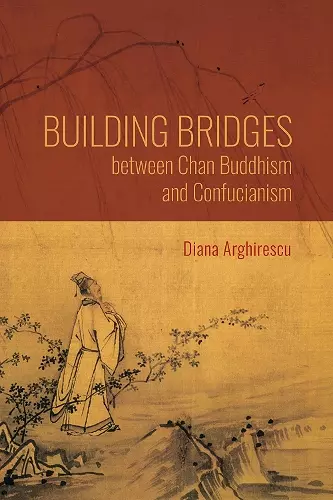Building Bridges Between Chan Buddhism and Confucianism
A Comparative Hermeneutics of Qisong's "Essays on Assisting the Teaching"
Format:Paperback
Publisher:Indiana University Press
Published:6th Dec '22
Should be back in stock very soon

In Building Bridges between Chan Buddhism and Confucianism, Diana Arghirescu explores the close connections between Buddhism and Confucianism during China's Song period (960–1279). Drawing on In Essayson Assisting the Teaching writtenby Chan monk-scholar Qisong (1007–1072), Arghirescu examines the influences between the two traditions. In his writings, Qisong made the first substantial efforts to compare the major dimensions of Confucian and Chan Buddhist thought from a philosophical view, seeking to establish a meaningful and influential intellectual and ethical bridge between them.
Arghirescu meticulously reveals a "Confucianized" dimension of Qisong's thought, showing how he revisited and reinterpreted Confucian terminology in his special form of Chan aimed at his contemporary Confucian readers and auditors "who do not know Buddhism." Qisong's form of eleventh-century Chan, she argues, is unique in its cohesive or nondual perspective on Chinese Buddhist, Confucian, and other philosophical traditions, which considers all of them to be interdependent and to share a common root.
Building Bridges between Chan Buddhism and Confucianism is the first book toidentify, examine, and expand on a series of Confucian concepts and virtues that were specifically identified and discussed from a Buddhist perspective by a historical Buddhist writer. It represents a major contribution in the comparative understanding of both traditions.
"This book gives a clear, systematic and detailed exposition of the thought of the Chinese Buddhist monk Qisong (1007-1072), which serves as a bridge to communicate between Chan Buddhism and Confucianism in the early Song dynasty of China. The author presents a vivid interpretation of Qisong's thought through a very detailed textual analysis of his works and a comparison between Qisong's theoretical system and that of the great Song Neo-Confucian Zhu Xi who lived about a century later. There is no doubt that Qisong's thought represents a significant mode of synthesis of Chinese Buddhist and Confucian theories, and should assume a position in the intellectual history of China. To me, this book successfully demonstrates the Chan Buddhist thought of Qisong inspired and stimulated the Neo-Confucian philosophical awareness of the metaphysical insight latent in the Confucian classics and in turn contributed to the rise and flourish of Song-Ming Neo-Confucianism."—Simon Man Ho Wong, The Hong Kong University of Science and Technology
"Although the great intellectual traditions of Buddhism and Confucianism existed alongside each other in a complex manner through several centuries of Chinese history, truly sophisticated attempts at mutual intellectual understanding between them were almost nonexistent for most of this period. It was not until the Song dynasty when the necessary impetus and intellectual erudition manifested itself in the mind of the eminent Chan master Qisong (1007–1072). Qisong, who was also deeply conversant in the texts of Confucianism, brought the Buddhist-Confucian dialogue to a new philosophical level in his writings. In this book Diana Arghirescu has provided us with a rich annotated translation of some of Qisong's central works, along with a substantial introduction to their philosophical role. This book goes far in filling in a large gap in our understanding of Song intellectual history."—A. Charles Muller, Musashino University
"An impressive in-depth analysis. It introduces a prominent voice of early Song Buddhism. At the same time, the author is adding a crucial perspective on the formative stage of daoxue Confucianism in the 11th century."—Christian Soffel, Universität Trier
ISBN: 9780253063687
Dimensions: unknown
Weight: 431g
310 pages